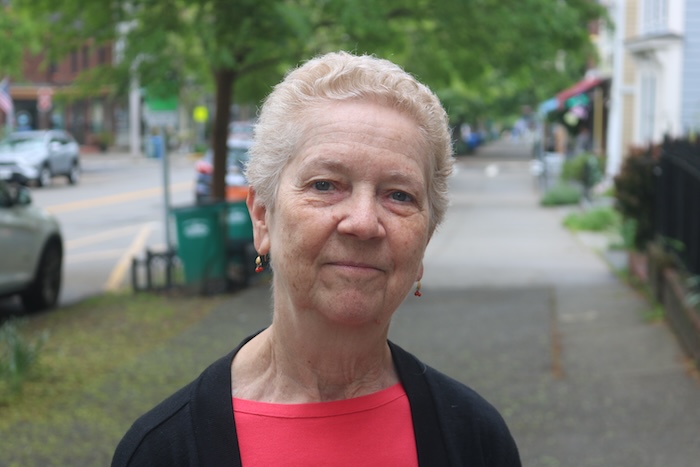Sarah Bartlett, the retired dean of the CUNY Graduate School of Journalism, is the editor of Watching Putnam Valley (watchingputnamvalley.com).
You reported for many years for national publications. Is writing about Putnam Valley much different?
I covered parts of New York City for The New York Times and sometimes freelanced for the local newspaper in Tribeca, so I was used to covering community board meetings and city council issues. For nine years, I taught student journalists how to cover the city. In many ways, it’s a natural transition. It’s work I knew how to do before, and I still really enjoy it. I focus on facts. I don’t write opinion pieces, although if I think an argument is not strong, I indicate that. I try to make sure I’m accurately representing a point of view.

Why did you launch Watching Putnam Valley in 2023?
I retired to Putnam Valley, but I’m not used to living somewhere where I don’t know what’s going on, and it was driving me crazy. The beauty of Putnam Valley government is that it’s transparent: The town livestreams, records and archives every public meeting. I started watching on my laptop while cooking and discovered they sometimes proposed things that seemed odd.
For example, there was a proposal to change taxation related to solar panels. In New York state, there’s a guarantee that if you add solar panels, your assessment won’t increase. Putnam Valley wanted to opt out of that, which seemed counter to state policy and good environmental policy. My neighbors and I showed up at a Town Board meeting and persuaded them to remove the resolution.
What issues are on residents’ minds these days?
I’d say property taxes and school taxes. Initially I focused on the Town Board, but I started covering the school board, as well, because it’s such a big chunk of people’s taxes. Also, people are concerned about development and policies around land and land use; there’s a real commitment to ensuring that the rural nature of Putnam Valley doesn’t get eroded. There’s limited commercial activity, and I think people would love to see that increase, to help share the tax burden.
How does the lack of a central village affect Putnam Valley?
That’s one of the reasons I started the blog. The three large lakes are the town’s main feature: Lake Peekskill, Lake Oscawana and Roaring Brook Lake. What struck me was how little communication there was across them. A Roaring Brook Lake resident might never hear about something that’s important to a Lake Peekskill resident. Topography, water quality, regulations and congestion differ from lake to lake. I’m trying to identify those issues. I’d love to see an organization unite the lake communities in terms of the environment; there’s a missing element there.
What’s the state of politics in the town?
It’s about a third Democrat, a third Republican and a third independent, with tiny Conservative and Working Families parties, as well. Four of the five Town Board members are Republican and, for the first time in more than 40 years, there’s a Republican primary for supervisor [on June 24]. In January, a school board bond proposal was rejected by 42 votes. Parents have been inactive; the vote had only 25 percent turnout. The vote triggered a lot of self-reflection; there’s been a lot more community organizing and activism since.
You’re seeing that reflected in new leadership in the Putnam Valley Democratic Party, which is fielding candidates in the November election — a new development. National politics may be driving more people to care, but there isn’t the intensity and the polarization you see at the national level. There’s more civic dialogue here. There’s a commitment to the town that seems to cross parties.


Sarah Bartlett is quoted as saying that Putnam Valley livestreams, records and archives every public meeting. This is not correct in regard to meetings of the Putnam Valley Commission for the Conservation of the Environment. CCE meeting minutes are posted on the town’s website but there have never been live or delayed video streams, nor Channel 18/20 recordings, nor YouTube videos. This is regrettable. In past years, the town’s tree law and the town’s Natural Resources Inventory originated in CCE. Currently CCE is addressing how to carry out an Open Space Inventory (OSI). Such efforts deserve wider public attention.